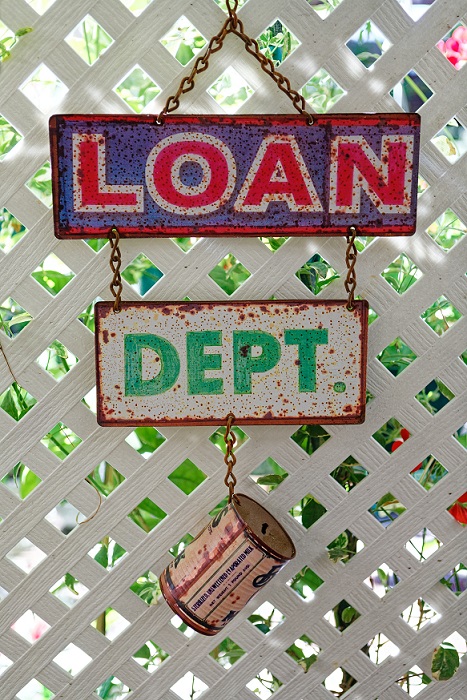
Purchasing a home is one way to have control over your housing. But homeownership is also a wealth-building superpower. Pay off the mortgage, and the loan balance shrinks. Month by month, the home becomes a source of value that can grow with the real estate market.
At some point, you might want to tap into that value, to fund other goals. As a homeowner, you can consider a home equity loan (HEL) or home equity line of credit (HELOC).
What Do You Need to Fund? Which Is Best for Your Goals?
With a home equity loan (HEL), you borrow a lump sum, to fund any expensive project—perhaps revamping a home, taking a trip, paying for a big celebration, buying a car or camper… or plain old debt consolidation. The HEL is a lot like a mortgage. Indeed, it’s sometimes referred to as a second mortgage. A home equity loan could be worthwhile if you have paid down your mortgage to the point where the lion’s share of the home’s value belongs to you — not the bank.
☛ Homeowners with plenty of home equity could also consider a cash-out refinance to fund big goals. Learn more with us here: How to Replace Your Current Mortgage With Cash-Out Refinancing.
A home equity line of credit (HELOC) has more of a credit-card vibe. You get a credit line for ongoing or surprise expenses. Some homeowners use their HELOCs for all they’re worth. Others rack up no debt (and no interest) until they have a need. Their HELOC goals could involve funding college degrees, taking on medical costs, making their homes accessible so they can age in place, or something else. Here again, debt consolidation could even be the goal.
A HELOC’s interest rate might seem cheap compared to the fixed rate on a home equity loan. But then, sometimes a HELOC’s variable rate can shoot up.
Good news about that interest if you’re using a HEL or HELOC for home improvement. That interest is tax-deductible if you’re itemizing deductions.
Whichever path you take, expect to produce tax documents and your mortgage account history. Ask the mortgage company about the appraisals and insurance coverage you will need before you get started.
Now, let’s look a bit more closely at these two popular borrowing options…
The Home Equity Loan: Highlights
Ready to take your financial goals to a lender who’s on board with your plan? You can take out a home equity loan for an amount that fits your credit profile and your total home equity, based on an updated appraisal. A lender could let you pull up to 85% of the home equity from your home.
Here’s how things work when you’re approved for a home equity loan (HEL): As with a mortgage, interest rates depend on your credit score, and your income and assets. You’ll get a fixed interest rate and a date certain for your final payoff. The HEL might be as long as 30 years, but if your agreement allows it, you can overpay to make a faster payoff and cut down the total interest you pay.
Can you sell a home with the HEL lien still on the title? Can you agree to pay off the lender from your home sale money? When and if you ever need to cross that bridge, you’ll speak with your mortgage consultant for situation-specific advice.
Caution: The lender will record a lien on your title. A home equity loan will then be a second lien in addition to your original mortgage lien. A homeowner has to be financially prepared to take on that extra obligation. That is, your home’s at stake if you run into trouble paying off a HEL as agreed.
The Home Equity Line of Credit: Highlights

A home equity line of credit (HELOC) is a different way to get at the equity you have built in the home. As with the HEL, the house is collateral for whatever you borrow. The lender records a lien on your title and can claim an interest in your home if you fall behind on payments. By shouldering that risk, you offset the lender’s risk. So, you’ll get to borrow at a lower rate than you’d have to pay on unsecured debt (like a credit card balance). That said, home equity loans — because they are second liens, and don’t get the benefit of first priority — expect you to pay higher than regular mortgage rates.
Your credit line will come with an annual fee. Your borrowing limit could be as much as 85% of your built-up home equity. And your credit profile will impact the lender’s decision on how much borrowing power you’ll get.
Now, let’s check out what makes a HELOC unique:
- The HELOC is a flexible way to borrow and spend. Bring down your balance to increase your available credit. Use — and pay interest on — only what you need.
- You’ll have a period that lasts perhaps five or ten years to draw on your line of credit. Throughout this time you’ll pay interest on what you borrow.
- At the end of the HELOC’s term, monthly payments can rise. This is because you’ll need to pay the interest — plus the principal, now.
- Expect the HELOC’s variable interest rate to fluctuate with market changes and your credit activities.
Caution: There’s a cap that limits what lenders can charge for a HELOC’s interest rate but it could be quite high. Also check for any origination fees, early payment penalties, or any balloon payments that come due at the end.
Unless you apply to the lender to renew your account, your borrowing power stops when the repayment period starts. Repayment can be stretched out as long as 20 years. Does the HELOC end when you sell? No, the lien won’t go away by itself. You’ll need to officially terminate the HELOC — not just pay it off.
☛ Buying a home? Don’t let someone else’s lien sneak up on you. Consider owner’s title insurance to guard you from past owners’ liens that could devalue your new title.
U.S. Homeowner Equity Is on a Roll
From May 2020 to June 2022, home values surged. Many homeowners aren’t willing to sell their current homes to try to buy something else in today’s pricey market. Yet they could be sitting on substantial amounts of untapped home value (that could expand a currently owned home!).
For a first-time equity borrower, a good lending professional is wonderful to find. Your search for recommendations can begin with close friends who have already tapped their equity, or with your current mortgage specialist. Deeds.com is not a financial adviser and cannot offer individualized guidance.
Supporting References
Daniel Liberto for Investopedia.com: Does a Home Equity Loan Create a Lien Against Your Title? (updated Aug. 9, 2022).
Upstart.com: HELOC vs. Home Equity Loan: What’s the Difference? (updated Jun. 16, 2022).
Deeds.com: HELOC – How Home Equity Lines of Credit Impact a Home’s Title (Jul. 30, 2020).
Holden Lewis and Kate Wood for NerdWallet.com: HELOC – Understanding Home Equity Lines of Credit (June 5, 2020).
And as linked.
Photo credits: Karolina Grabowska and David Levinson, via Pexels.
